| Article ID | Journal | Published Year | Pages | File Type |
|---|---|---|---|---|
| 2010711 | Pharmacological Reports | 2012 | 15 Pages |
Background and MethodsSeveral lines of evidence support a strong relationship between cholinergic pathways and memory. The aim of our experiments was to examine the mechanisms involved in the formation of different memory stages, to evaluate the impact of substances, which affect the cholinergic system in mice, with an employment of the modified elevated plus maze (mEPM) test. This test allows examining different processes of memory (acquisition, consolidation and retrieval), depending on the time of drug treatment. The time period, necessary for mice to move from the opened arm to the enclosed arm (i.e., transfer latency, TL) was used as an index of memory.ResultsOur findings revealed that in both memory acquisition and consolidation, nicotine, an agonist of cholinergic receptors (0.035 and 0.175 mg/kg, free base, sc), reduced TL on the second day of the experiment (TL2), thus improving memory. In turn, scopolamine, an antagonist of cholinergic receptors (0.3 and 1.0 mg/kg, ip), significantly increased TL2 values, impairing cognition. Subsequently, we evaluated the influence of mecamylamine, a non-selective antagonist of nicotinic cholinergic receptors (nAChRs) and of varenicline, an α4β2 partial nAChRs agonist, on memory-related behaviors induced by nicotine and scopolamine. Acute injections of mecamylamine (0.5 and 1.0 mg/kg, ip) and varenicline (0.5 and 1.0 mg/kg, ip), prior to the injections of nicotine (0.035 mg/kg) or scopolamine (1.0 mg/kg), significantly suppressed nicotine-induced memory improvement or scopolamineinduced memory impairment.ConclusionOur studies indicate that the cholinergic system plays a crucial role in memory processes. Pharmacological manipulation of cholinergic transmission can be the base to develop more effective pharmacotherapies for these memory disturbances in which cholinergic receptors are involved.
